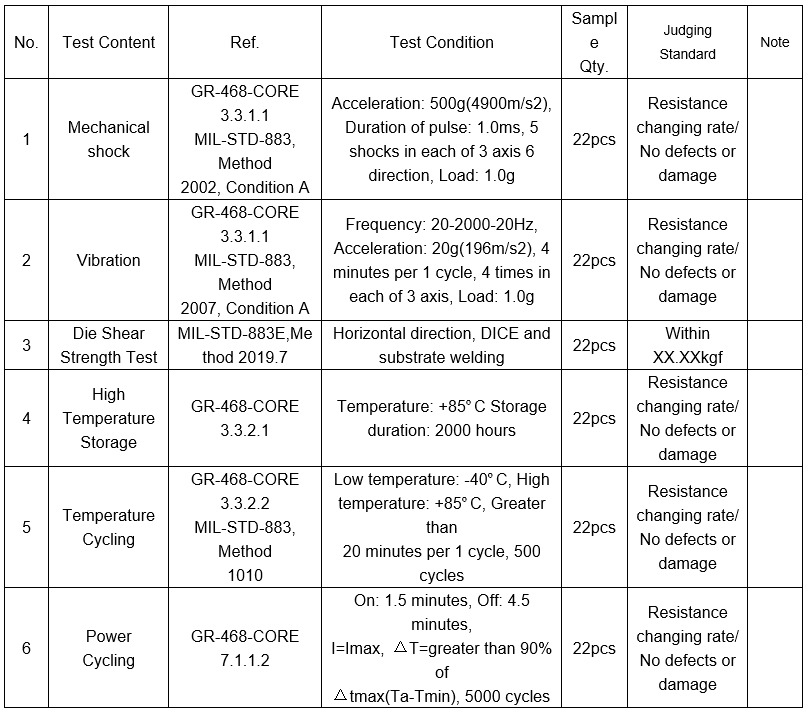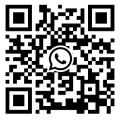TEC Science Class: A Complete Analysis of Reliability Test of Thermoelectric Semiconductor Coolers
1. What is TEC reliability testing?
TEC reliability testing refers to a testing method that comprehensively evaluates thermoelectric semiconductor cooling products by simulating actual usage conditions and environments. Its main purpose is to ensure that TEC products can operate stably and for a long time under various actual environmental conditions and meet the expected performance requirements.Through reliability testing, companies can discover potential product defects in advance and make timely improvements and optimizations, thereby improving product reliability and enhancing their market competitiveness.
2. What does reliability testing include?
1. Environmental adaptability test
Including temperature testing (high temperature, low temperature, temperature cycle), humidity testing, vibration testing and shock testing ; this test is used to evaluate the product's tolerance and stability in various extreme environments.
2. Durability test
Including life test and fatigue test . Life testing verifies the service life of a product through long-term continuous operation or cyclic operation; fatigue testing is used to evaluate the fatigue strength and reliability of a product during repeated use and loading and unloading.
3. Electrical performance test
Including insulation resistance test, voltage withstand test and ground resistance test ; this test is used to ensure that the product will not have safety problems such as leakage under normal use and abnormal conditions.
3. Taking optical communication reliability test as an example
Next,we will take optical communication products as an example to give a detailed introduction to the test purpose, reference standards and test methods of reliability testing: GR-468 standard is usually used to test thermoelectric semiconductor coolers in optical communication applications. The following are its six key test items.
*GR-468 is a set of general requirements developed by Telcordia Technologies (formerly Bell Communications Research) for reliability testing and evaluation of optoelectronic components in telecommunications equipment.1. Mechanical shock test
Test purpose: To simulate the impact that the product may suffer during transportation and use, and to evaluate its structural strength and seismic performance. Through testing, we identify the structural weaknesses and functional degradation of the product to ensure that the product can work normally in various harsh environments.
Reference Standard: Reference GR-468-CORE 3.3.1.1 MIL-STD-883, Method 2002, Condition A
Test method: acceleration 500g (4900m/s²), pulse duration 1.0ms, 5 shocks on each of the 3 axes, load 1.0g
2. Vibration test
Purpose of the test: To test the vibration resistance of the product in the expected use environment, to ensure that potential vibration problems of the product can be discovered during the design phase, and to screen out defective products during the production process to improve its reliability and durability.
Reference Standard: GR-468-CORE 3.3.1.1 MIL-STD-883 Method 2007 Condition A
Test method: frequency 20-2000-20Hz, acceleration 20g (196m/s²), 4 minutes per cycle, 4 times in each of the 3 axes, load 1.0g
3. Shear force test
Test purpose: To evaluate the mechanical properties of materials under shear stress, including shear strength, shear modulus, shear deformation and other characteristics. Shear tests are used to determine the maximum stress of a material when it is subjected to shear, which is crucial for designing structures that withstand shear.
Reference Standard: GR-468-CORE 3.2.10.4 MIL-STD-883 Method 2019
Test method: Test the connection between semiconductor particles and substrate in the horizontal direction and confirm the shear force according to the size of each product.
4. High temperature storage test
Purpose of the test: By placing the components in a high temperature environment and applying high temperature stress (without electrical stress), the various physical and chemical changes inside and on the surface of the components are accelerated, defective components are exposed as soon as possible, and the adaptability and reliability of electronic components in a high temperature environment are evaluated.
Reference standard: GR-468-CORE 3.3.2.1
Test method: temperature +85℃, storage time 2000 hours
5. Temperature cycle test
Purpose of the test: By simulating the working state of the product at different temperatures, potential material defects and manufacturing quality defects are exposed, thereby eliminating early failures and improving product reliability. Through the preset high and low temperature alternating environment, the product is stress screened to assess its adaptability under temperature cycle changes, ensuring that the product can work normally under various environmental conditions.
Reference standards: GR-468-CORE 3.3.2.2 MIL-STD-883 Method 1010
Test method: low temperature -40°C, high temperature +85°C, each cycle is greater than 20 minutes, 500 cycles
6. Switch cycle test
Purpose of the test: By simulating the frequent switching operations in actual use, the durability and reliability of the switching power supply are evaluated to ensure its stable operation in various application scenarios.
Reference standard: GR-468-CORE 7.1.1.2
Test method: On: 1.5 minutes, Off: 4.5 minutes, I = Imax, ΔT> 90% of Δtmax (Ta-Tmin), 5000 cycles

▲ Reliability test method reference table
* Since most TECs have similar structures, their reliability test results can be used as references to each other provided that their sizes and design processes are similar.
4. FerroTec Reliability Laboratory



